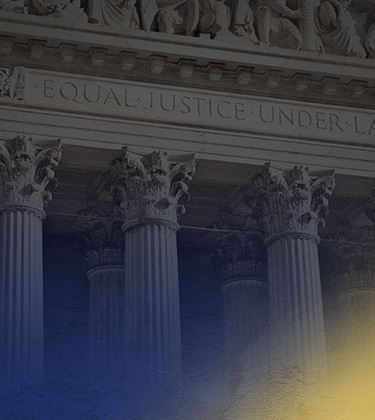
Getting a Restraining Order in Florida
Jacksonville Family Lawyers with 125 Years of Experience
No one should live in fear from violence, whether that violence is sexual or physical in nature. That’s why Florida law allows citizens to file civil injunctions, also known as restraining orders, to ensure that they are protected from dangerous abusers and anyone who intends to do them harm.
At Owenby Law, P.A., our experienced restraining order attorneys in Jacksonville are dedicated to protecting our clients from the threat of violence, and ensuring that the terms of their civil injunctions are sufficient to keep them safe. If you need help filing, extending, or pursuing a restraining order in Florida, give us a call for the help you need.
Call (904) 770-3141 today to schedule a free 30-minute consultation.
Different Types of Restraining Orders
“Restraining order” is actually a colloquial term for what lawyers refer to as civil injunctions or protective orders. From assault and battery to stalking and kidnapping, there are any number of violent acts that a restraining order can protect you from experiencing in the future. The type of restraining order, however, will depend on the nature of the violence you’ve experienced, as well as your relationship with the perpetrator.
There are 4 main types of civil injunctions you can file in the state of Florida, including:
- Domestic violence: Domestic violence injunctions can be filed against any family or household members that have committed a violent act against you or an immediate family member. The family relationship can be by marriage or by blood, and live-in partners are included.
- Sexual violence: If someone has forced or coerced you to participate in sexual acts, or done so against a child, the victim can petition for a restraining order. You can still file even if criminal charges were dismissed, as the injunction is filed in a civil court.
- Dating violence: Those who are eligible for a dating violence injunction must have been involved in a romantic or sexual relationship for some period of time during the previous 6 months, and the relationship must have been continuous at the time.
- Repeat violence: If you or your immediate family members have been the victim of at least 2 violent acts from the same person, you can file a repeat violence injunction, regardless of your relationship to the individual.
These injunctions can provide various protections, such as:
- Prohibiting Contact: The restrained person may be ordered to have no contact, direct or indirect, with the protected person.
- Staying Away: The restrained person may be ordered to stay a certain distance away from the protected person's home, workplace, school, or other locations frequented by the protected person.
- Temporary Custody: In cases involving children, the court may grant temporary custody to the protected person and establish a temporary parenting plan.
- Possession of Property: The court may grant temporary possession of the residence to the protected person and order the restrained person to vacate the premises.
- Firearms Restrictions: In cases of domestic violence or stalking, the court may order the restrained person to surrender any firearms they possess and prohibit them from obtaining new firearms.
Benefits of a Restraining Order
A restraining order, also known as an injunction for protection, offers several benefits to individuals who are experiencing harassment, abuse, stalking, or threats from another person:
- Legal Protection: A restraining order provides legal protection by establishing clear boundaries between the protected person and the restrained person. It outlines specific behaviors that the restrained person must refrain from, such as contacting the protected person, coming near their home or workplace, or engaging in any form of harassment or abuse.
- Safety and Security: One of the primary benefits of a restraining order is enhanced safety and security for the protected person. It can help prevent further incidents of harassment, abuse, or violence by legally requiring the restrained person to stay away and refrain from any form of contact.
- Peace of Mind: Knowing that there is a legal order in place can offer peace of mind to the protected person, reducing fear and anxiety associated with the threat of violence or harassment. It allows them to feel more secure in their daily lives, knowing that there are legal consequences for any violations of the order.
- Empowerment: Seeking a restraining order can empower victims of harassment or abuse to take control of their situation and protect themselves from further harm. It sends a clear message to the restrained person that their behavior is unacceptable and will not be tolerated.
- Access to Resources: In many cases, obtaining a restraining order also provides access to additional resources and support services for the protected person, such as counseling, advocacy, and referrals to community organizations that specialize in assisting victims of domestic violence or stalking.
- Legal Recourse: If the restrained person violates the terms of the restraining order, the protected person has legal recourse. They can report the violation to law enforcement, and the restrained person may face arrest, fines, or other penalties for contempt of court.
How Do I File for a Restraining Order?
To file for a restraining order, you will need to prepare a petition for a temporary injunction and file it to the appropriate civil court. Within 15 days, there will be a hearing, and a judge will decide whether to grant your request for a permanent injunction against your abuser.
Although the final injunction is called “permanent,” however, the judge will often decide to set an expiration date approximately 1-5 years after filing. Your abuser (the “respondant”) can also move to dissolve the restraining order. If that happens, it’s vital that you have the right legal counsel to stand up for your rights and protect you from further violence.
For the skilled and compassionate legal service you need, call (904) 770-3141 to contact our team at Owenby Law, P.A.
How Can We Help?
-
 Meet Your Legal ProfessionalsWe put the time and care into your case that it deserves, and we are here to guide you through this process.
Meet Your Legal ProfessionalsWe put the time and care into your case that it deserves, and we are here to guide you through this process. -
 Handling All Aspects of the Legal ProcessWe are the reputable and reliable law firm you need on your side during your legal matter. We handle all types of cases!
Handling All Aspects of the Legal ProcessWe are the reputable and reliable law firm you need on your side during your legal matter. We handle all types of cases! -
 Answers to Your Legal QuestionsThe legal process can be daunting, and we understand you may have questions. Review our FAQ page to find helpful answers.
Answers to Your Legal QuestionsThe legal process can be daunting, and we understand you may have questions. Review our FAQ page to find helpful answers.
The Benefits of Hiring Owenby Law, P.A.
Owenby Law, P.A. is here to help you get the results you need with a team you can trust.
-
Free Initial Consultations
-
Successfully Handled Thousands of Cases
-
Backed by Over 20 Years of Experience
-
Personalized, Results-Oriented Representation
-
A Team of Compassionate Advocates On Your Side
-
Flexible Payment Plans Available


